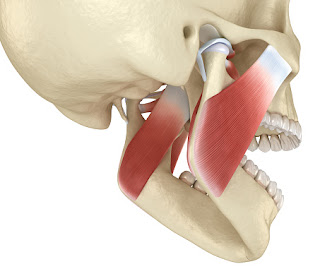Best Home Remedies To Relieve TMJ Pain
Pain in your face and jaw can be excruciating, and it’s even worse when you don’t know what’s causing it. For many of us, facial pain is related to the temporomandibular joint. It’s the hinge-like joint that connects your upper and lower jaw bones. Anytime this joint isn’t working properly, it could mean you’re having symptoms of temporomandibular joint disorder, or TMJ.
The main TMD symptom is pain in the jaw joint. This joint is located just in front of the ear, and pain associated with TMD may involve the face, eye, forehead, ear, or neck. Signs and symptoms of temporomandibular joint dysfunction include pain or tenderness in the jaw, especially at the area of the joint, popping/clicking of the jaw, pain that feels like a toothache, ear pain (earache) or sounds of cracking in the ears, ringing or popping sounds in the ears (tinnitus) or a sense of fullness in the ears, headaches, including migraines, blurred vision, tight, stiff, or sore jaw or neck muscles, muscle spasms in the jaw and facial pain, mouth pain, jaw pain, cheek pain, or chin numbness or tingling.
Many symptoms of TMJ disorders can respond well to home remedies or stress reduction and relaxation techniques. The best home remedies to relieved TMJ pain are:
Ice or cold packs to the area of the joint
Over-the-counter nonsteroidal anti-inflammatory drugs, such as ibuprofen or naproxen, and other pain relievers, including aspirin and acetaminophen
Eating soft foods and avoiding chewing gum
Massage or gentle self-stretching of the jaw and neck muscles
Relaxation techniques and stress management and reduction
Some sedative essential oils may provide temporary relief from the pain and discomfort of TMJ.
Severe pain caused by damaged joints may require more invasive treatments, such as corticosteroid injections into the TMJ. Surgery may be considered as a last resort. There isn’t any scientific evidence that surgical interventions for TMJ disorders are safe and effective. TMJ pain may also be managed with simple lifestyle changes like:
eat a soft diet to allow the TMJ to relax
avoid chewing gum
avoid biting your nails
avoid biting your lower lip
practice good posture
limit large jaw movements, such as yawning and singing
Anytime you have aching pain in your face, temple, ear, or jaw, you may be dealing with TMJ. As you understand your symptoms, take care of yourself at home, and counsel with your doctor, you can find relief. Make an appointment with your doctor to learn more about TMJ and what you can do to relieve your symptoms.



Comments
Post a Comment